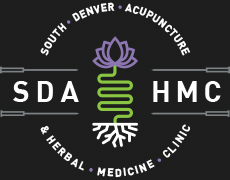What Does Traditional Chinese Medicine Treat?
Traditional Chinese Medicine is a complete medical system that has been in use for thousands of years and has been able to treat millions of people all over the world. Traditional Chinese medicine is a unique system that differs from the western medical allopathic model in a few key ways. While the western system that is predominately used in the United States and most western countries tends to focus on the body as a system of component systems and focuses on treatment by alleviating or reversing symptoms, traditional Chinese medicine is a holistic medical system meaning that the entire person is treated, both the physical person, their mental health, and their outlook on life as well. In addition to treating the symptoms that a patient complains about, traditional Chinese medicine will dig deep to find the root cause of a patients symptoms and then work with a variety of treatment techniques to help address the root cause, alleviating symptoms at their source rather than simply masking them.
In addition to this whole health perspective, Traditional Chinese Medicine stresses that an individual, their health, environment, and situation is unique and different from any other person.
This allows for a flexible way of treating a problem. Traditional Chinese medicine has an axiom that states “Many Diseases, One Pathogen, One Pathogen, Many Diseases”, meaning that there can be very different reasons for two people to have similar symptoms or complaints. Because of this unique way of looking at the body and health in general, it is possible for almost any set of symptoms and conditions to fit into the diagnostic framework of traditional Chinese medicine, allowing for a skilled practitioner to come up with an accurate differential diagnosis and develop a unique treatment plan that will be focused on both the root cause of the problem as well as the symptoms that are manifesting because of it.
Ailments Treated by Chinese Medicine
Respiratory Disorders
Sinusitis, Rhinitis
Common Cold
Tonsillitis
Sore Throat
Hay Fever
Bronchitis
Bronchial Asthma
Eye Disorders
Acute Conjunctvitis
Myopia in Children
Cataracts without complications
Central Retinitis
Mental-Emotional Disorders
Anxiety
Depression
Stress
Insomnia
Addictions
Weight Control
Musculo-Skeletal Disorders
Frozen ShoulderTennis Elbow
Low Back Pain
Osteoarthritis & Joint Pains
Stiff Neck
Tendinitis
Bursitis
Sprains
Injuries from Auto Accidents
Chronic Fatigue Syndrome
Fibromyalgia
Gastro-Intestinal Disorders
Acute & Chronic Gastritis
Hyperacidity
Hiccoughs
Acute Uncomplicated Duodenal ulcer
Chronic Duodenal Ulcer (Pain Relief)
Acute & Chronic Colitis
Acute Bacillary Dysentery
Constipation
Diarrhea
Paralytic ileus
Neurological Disorders
Headache & Migraine
Dizziness
Trigeminal Neuralgia
Facial Palsy (if treated within 3-6 months)
Pareses following Stroke
Peripheral Neuropathies
Meniere’s Disease
Neurogenic Bladder Dysfunction
Nocturnal Enuresis
Intercostal Neuralgia
Sciatica
Disorders of the Mouth
Toothache
Post Extraction Pain
Gingivitis
Acute and Pharyngitis
Ear Disorders
Ringing in the Ears
Deafness
Meniere’s Disease
Earache
Reproductive System Disorders
Infertility
Premenstrual Syndrome (PMS)
Irregular Menses
Menstrual Cramps
Menopausal Symptoms
Morning Sickness
Urinary Incontinence
Impotence
Pelvic Inflammatory Disease (PID)
